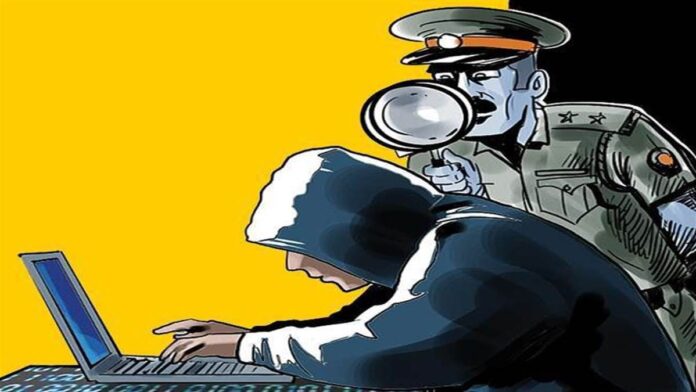Fifteen cyber police stations have been established in each district of the national capital to combat emerging cyber crime trends, the city police have told the Delhi High Court.
Delhi police, in reply to a PIL, said cyber crimes can be easily reported online as well as through facilitation number ‘1930’ which works round-the-clock.
The Centre, in its response, told the court states and union territories can run suitable awareness programmes to spread awareness about the implementation of cyber laws.
The responses came on a public interest litigation (PIL) seeking invocation of the relevant provisions of the Information Technology Act whenever a complaint is made for lodging an FIR for an alleged cyber crime.
Delhi police said based on the facts, some cases are registered only under the Information Technology (IT) Act, and for others relevant provisions of the Indian Penal Code (IPC) are also invoked.
Traditional laws like IPC can be applied to address various cyber related crimes and offences in instances of hate speech, stalking, recruitment for online propagation of terrorist agenda, sending deceitful messages etc, the city police said.
“It is relevant to mention here that most of the offences under IT Act are bailable whereas IPC has stringent punishment. Delhi Police diligently considers the facts and circumstances of each case before taking appropriate action,” the reply filed through Delhi government standing counsel Santosh Kumar Tripathi said.
“While some cases are registered solely by invoking the Information Technology (IT) Act, others involve both the IT Act and the Indian Penal Code (IPC) based on the specific details of the case. This approach allows for a comprehensive assessment, ensuring that the legal framework adequately addresses the nature of the offence and provides appropriate remedies,” it said.
“In order to combat the emerging cyber trends, 15 cyber police stations have been established in each District of Delhi,” added the reply.
The Cyber Crime Unit has been rechristened as Intelligence Fusion & Strategic Operations Unit which has the mandate to generate intelligence and carry out operations to counter new cyber crimes.
A copy of an FIR registered on any complaint is sent to the financial entity concerned within 24 hours so that the banks/ wallets have authentic reasons to block the money and mobile numbers and International Mobile Equipment Identity (IMEI) found involved in cyber crimes are also sent to Department of Telecommunications (DoT) for blocking, it said.
It said Delhi police have also inked an MOU with Truecaller to detect the fake numbers and give a green badge to the verified numbers of police personnel and a blue tick mark to the verified government services.
The reply also said steps have been taken to mitigate cyber crime and facilitate coordination with foreign security and intelligence components.
Also Read
The Ministry of Electronics and Information Technology, in its response, said the secretary of the Department of Information Technology of each state or union territory has been appointed as adjudicating officer to deal with violations of the provisions of the IT Act and adjudicate claims and penalties.
“Respective State/UTs are empowered to provide separate infrastructure and online visibility for the regular functioning of the respective Adjudicating Officers appointed under the IT Act, 2000 and thus only States/UTs are to run suitable awareness programs to make people aware of their functions,” the reply said.
The city police informed the court that in October 2022, the Delhi Lieutenant Governor launched Cyber UDAY 2.0 (Universal Direct Awareness in Youth) to reach out to 26,000 students in schools and colleges about cyber crime and prevention awareness.
The lieutenant governor has also unveiled an e-book on “Cyber Swachhta for Citizens’ to create awareness through various social media platforms.
Phd scholar Ananya Kumar, the petitioner, has said in her PIL that she was agitating the “cause of the people who are suffering due to non-implementation of the various provisions of Information Technology Act, 2000 in its true sense”.
The petition has said due to non-implementation of the IT Act, public money spent in establishing and running special cyber police stations was getting wasted and an aggrieved person was also not able to avail the civil remedy under the law.
“Most of the time whenever the aggrieved complainant approaches the Police in Delhi for legal action in Cyber-Crime, the police in a routine manner registers an FlR only under the provisions of the Indian Penal Code, 1860 (IPC) in contravention of the law laid down by the Hon’ble Supreme Court of India,” the plea has said.
The petitioner has also prayed for directions to the Centre and state government to provide separate infrastructure and “online visibility” for proper functioning of the adjudicating officer appointed under the IT Act and spread mass awareness to make the public aware of such appointment.




